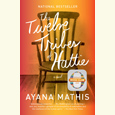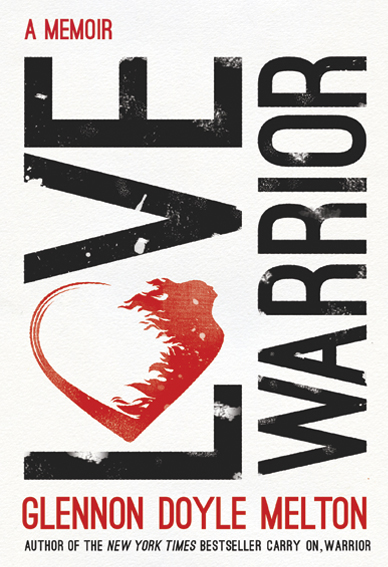Farm to Table—to Bookstore
Chapter 16 talks with celebrated chef Sean Brock about his new cookbook, Heritage
Sean Brock used to swear he’d never write a book. The acclaimed chef and owner of Husk—which has locations in Charleston and Nashville—was too busy making food the farm-to-table way, relying on improvisation and in-season ingredients. Nevertheless, Brock has now released a cookbook titled Heritage, and it’s a big book, too: a foot tall and 334 pages long. And with dozens of pictures of ingredients, pantry items, plated meals, and Brock’s favorite people and places, it’s also beautiful—a feast for the food historian and a gem for those who want to recreate Brock’s cooking. Heritage includes plenty of home-cooking fare, as well, including creamed corn and pimento cheese.
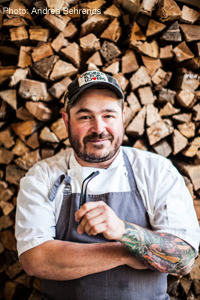 Prior to his Nashville event with singer-songwriter writer Jason Isbell on December 3, Brock recently spoke with Chapter 16 by phone:
Prior to his Nashville event with singer-songwriter writer Jason Isbell on December 3, Brock recently spoke with Chapter 16 by phone:
Chapter 16: Did this book just come to you, or have you been collecting anecdotes and recipes all along?
Sean Brock: The story is kind of crazy. I wanted to write a Lowcountry book and explain a lot of things that hadn’t been explained before [about the coastal plain] because there is this newfound discovery of a lot of old ingredients that weren’t available [before but] are now. And that was the original premise of the book. Then it just started turning into something else. And, four years later, it’s a book about my life and my journey as a chef. As long as I can remember, everyone has been asking when my book was coming out. Until four years ago, my response was always the same: “I’m never writing a book. I have no desire to write a book.”
Chapter 16: How did you decide what went into the book?
Brock: All those recipes came from my notebooks. I’ve been keeping a notebook since I was eighteen. There’s a hushpuppy recipe in there from when I was eighteen. I am thirty-six now, so that’s literally almost twenty years of notebooks. I went through them, and if something felt right, I would work it into the book. Those notebooks are an important part of my life.
And the idea of putting everything out there for everyone—that was something I wanted to do. Every secret, every tip, every recipe I’ve experienced for the last twenty years is in that book. I was feeling very generous. I wanted to share everything I’d experienced as a cook. [A cookbook] can inspire people to cook things they may be apprehensive about. You can inspire people to cook the food of their grandparents.
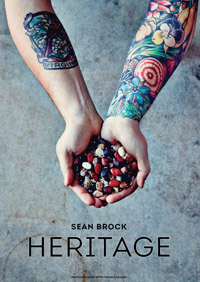 Chapter 16: Sounds like the notebooks are a safe space to do creative thinking. Tell us a little more about them.
Chapter 16: Sounds like the notebooks are a safe space to do creative thinking. Tell us a little more about them.
Brock: As soon as I open a notebook, I write the month and the year in it. They’re filled with everything from to-do lists, dish ideas, recipes, random thoughts, new business ideas—it’s a stream of consciousness. It’s fun to go back and look at something from 2000 and think, “Holy cow! I really thought that was a good idea?” Those notebooks, I always keep them—like a security thing.
Chapter 16: Heritage is kind of a mad conglomeration of old recipes (like hoecake), do-it-yourself foods (like home-cured bacon), and up to the minute “restaurant” recipes with multiple parts (like Stone Crab with Cucumber Juice, Fennel Jelly, and Raw Apple). It’s….
Brock: It’s all over the place for a reason: that’s how my brain works. You flip through the pages and see that I get as much enjoyment from grilling a chicken wing as from plating a slow-poached octopus with tweezers. I enjoy them both and respect them equally. Once you realize it’s all about caring and having fun and respecting ingredients and technique, it’ll all make sense.
Chapter 16: You are widely considered the chef who transformed Nashville’s restaurant scene when you were at Capitol Grille, most especially by using local and native ingredients. Do you agree with this characterization?
Brock: What was interesting about my time at the Hermitage [where the Capitol Grille is located] was that they invested a lot of money, time, and care into restoring the hotel, and that was a big statement that took a lot of guts and money. I knew the cuisine had to do the same. It was an interesting period in American food at the time. Ten years ago, people were starting to push food in a more modern direction, and people were really excited about it.
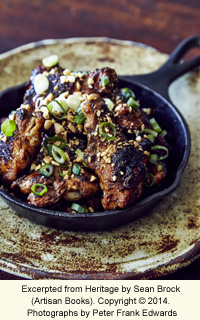 I appreciate opportunities, and once I realize how lucky I am, I tend to work a hundred times harder. I knew how lucky I was, and there was one span when I worked ten months without a day off. I was so buried in my work and so terrified of failure that I worked nonstop. Now I realize how unhealthy that was and how silly. But I was young, and I thought that’s what I was supposed to be doing.
I appreciate opportunities, and once I realize how lucky I am, I tend to work a hundred times harder. I knew how lucky I was, and there was one span when I worked ten months without a day off. I was so buried in my work and so terrified of failure that I worked nonstop. Now I realize how unhealthy that was and how silly. But I was young, and I thought that’s what I was supposed to be doing.
I was at the farmers’ market every day. Farmer Dave’s produce—I would buy everything that Farmer Dave would pull up with [in his truck]. It got to the point where Dave said, “I have to limit you because it’s making everyone mad.” We were hardcore into cooking seasonally.
I remember how proud I was when people walked in and saw Tennessee bacon and Tennessee hams and Tennessee beef and produce from the local farmers. But we were doing it with a modern point of view. And we were cooking in a hotel. That allowed us to have a big audience, an audience from all over the country. It was really cool. To this day I’m cooking for a lot of the same people. I’ll always be grateful for the support I got at Capitol Grille from people who would sit through thirty courses and listen to me blather about country ham. It was a really cool moment, and no way I could have pulled it off without the support of Nashville.
Chapter 16: I don’t think I was the only Nashvillian who was surprised that you left Capitol Grille during what looked like a winning season for you. What exactly took you back to Charleston?
Brock: I went to Charleston right out of high school and fell in love with the ocean and with living the coastal lifestyle because it was so different from how I’d grown up in the mountains. It was a whole new world to be discovered, and I became obsessed with the cuisine of that area. I had never seen a culture so dependent on waterways and upon a pantry that was formed during the rice era.
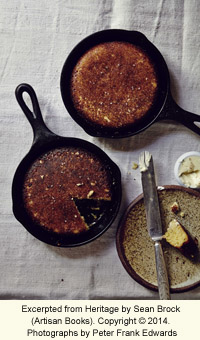 A big part of the dream to go back to Charleston in ‘06 was the mentorship I received from Bob Carter at Peninsula Grill. I really looked up to him. This group of chefs, like Louis Osteen, were waking up the cuisine and bringing it back. They were making iconic dishes people were traveling from all over world to come and eat. I wondered what it would be like to be in their shoes, doing work that had meaning and was something special. It was a goal of mine. And McCrady’s was my favorite restaurant because it was a little more modern than other restaurants. When that opportunity came, I knew I couldn’t pass it up. Walking into that kitchen at twenty-seven years old and living my goal was amazing to me. That was incredible, and I’m thankful for that every single day.
A big part of the dream to go back to Charleston in ‘06 was the mentorship I received from Bob Carter at Peninsula Grill. I really looked up to him. This group of chefs, like Louis Osteen, were waking up the cuisine and bringing it back. They were making iconic dishes people were traveling from all over world to come and eat. I wondered what it would be like to be in their shoes, doing work that had meaning and was something special. It was a goal of mine. And McCrady’s was my favorite restaurant because it was a little more modern than other restaurants. When that opportunity came, I knew I couldn’t pass it up. Walking into that kitchen at twenty-seven years old and living my goal was amazing to me. That was incredible, and I’m thankful for that every single day.
Chapter 16: Do you cook from your cookbook?
Brock: There are basically three levels of recipe in that book. One is family recipes, something my grandmother taught me or my mother or sister or aunt. So [the book is partly a kind] of community cookbook, of sharing recipes that aren’t even mine but are part of my memory or something I enjoy.
Then there’s stuff I cook at home. I love the ritual of going and buying ingredients, and having a plan—or not having a plan—and going home and cooking. I love cooking at home. It’s so relaxing and comforting to me. There’re three dishes that come to mind. One is roast chicken—simply roasted. I’ve been cooking chicken like that for years. Another is the whole spread of roast pork shoulder with creamed corn. So many things are involved in it that evoke so many memories. The way I fry chicken at home is not the way I fry chicken at the restaurant. The fried chicken in the book you will never see at Husk. You can’t pull that off in a restaurant. But it’s the ultimate way to fry chicken.
The third level of recipe is the exact recipes from the restaurant. That’s me literally going into the computer and forwarding the recipe to a recipe tester.
Chapter 16: We share a hobby—I love old cookbooks, and I’ve noticed you do, too.
>Brock: I realized when I became obsessed with nineteenth-century cookbooks that there’s more involved in a cookbook than ego or showing off. I would read about food from a moment in time, and it got my brain racing, got my wheels turning, and inspired the hell out of me. I would wake up and want to take old recipes and try to replicate them in a modern sense. I realized a cookbook is about inspiring people and capturing a moment in time.
Chapter 16: What recipe from Heritage do you most want people to cook?
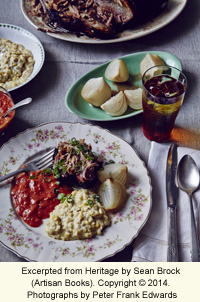 Brock: The cornbread. One, it’s a tradition and a craft that is so beautiful because the more you do it, the better you are at it. That’s the reason grandmothers make better cornbread—because they’ve been doing it for fifty years. I want people to do it several times and see how it gets better. Even though it’s a simple recipe, it’s a perfect example of great ingredients. You could do an experiment: take my recipe of Anson Mills cornmeal and the best buttermilk you can find, and you could make a skillet of that. And make one with the cheapest ingredients possible. And then the whole book would make sense.
Brock: The cornbread. One, it’s a tradition and a craft that is so beautiful because the more you do it, the better you are at it. That’s the reason grandmothers make better cornbread—because they’ve been doing it for fifty years. I want people to do it several times and see how it gets better. Even though it’s a simple recipe, it’s a perfect example of great ingredients. You could do an experiment: take my recipe of Anson Mills cornmeal and the best buttermilk you can find, and you could make a skillet of that. And make one with the cheapest ingredients possible. And then the whole book would make sense.
It’s important for people to taste the difference. The ingredients and flavors—we are all so damned lucky to have those ingredients at our fingertips. The work that went into getting those ingredients available to everyone’s fingertips—so much work went into it. It takes so much time. The only reason people do it is because you can taste the difference.
Chapter 16: I’m planning to make the Pickled Shrimp with Cilantro and Fennel. All those flavors—twenty-one ingredients in the pickling liquid alone. It looks to be just incredible.
Brock: I can taste something before I make it. I can taste the complexity that would be hidden. You have all these hidden flavors that you can’t see that are in the vinegar. I knew what I wanted to taste when I made up this recipe. That was a really big project for me to get that pickling liquid where I wanted it. I love watching people eat it for the first time because it’s got so many flavors.
Chapter 16: Several readers asked me to pass along questions. Here’s one: “How do you maintain quality control in restaurants in two different cities?” That’s a lot of plates to worry about, a lot of employees, and a lot of guests to nurture.
Brock: The secret is to hire a lot of people who are more creative and intelligent than you are. A lot of people are scared to do that, but it’s one of the most beautiful things about this industry, to watch people succeed because you gave them a chance. I want them to be their own chef. It’s amazing what can happen if you surround yourself with the right people who care on the same level you do. It’s amazing, and the results are incredible.
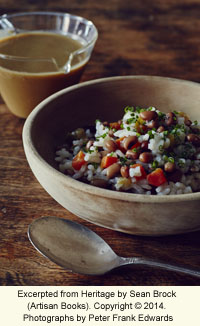 On top of that is intense communication. We’re constantly communicating in unique ways via iPhone and constantly working on things together. You want people to use their wings but not let them nosedive. Technology makes it so easy and so fun.
On top of that is intense communication. We’re constantly communicating in unique ways via iPhone and constantly working on things together. You want people to use their wings but not let them nosedive. Technology makes it so easy and so fun.
Chapter 16: Here’s another question from a reader: “What made you want to move back to Nashville? What is it about Nashville?”
Brock: What I love about Nashville is that it provides a place for creative people to take chances and have a lot of support to do so. You need confidence to go out on a limb and go a little off the wall. Nashville breeds that because you see people doing it around you all the time, whether it’s making jeans or light fixtures or leather goods or music or art, and it’s the same with food. People are supporting each other in a way that’s putting this sense of positivity in the air that is so contagious that it’s hard not to pay attention and hard not to do yourself.
Chapter 16: Another reader asks, “What ingredients do you think are overdone right now?”
Brock: A technique that’s being overused right now is fermentation. It’s a perfect example of people learning a new trick and not understanding restraint. It’s a very powerful thing and very important. I’ve been eating fermented foods since I could walk. But I’ve been to meals lately where the server said “fermented” for four courses.
Chapter 16: Another great reader question: “If you could have dinner with any chef, living or not, who would it be?”
Brock: Edna Lewis. I’ve always been fascinated by her work, and she was also from Virginia. I read a quote of hers from a New York Times interview in 1989. She said, “I grew up with delicious food in Virginia, and I found out that not everyone had that opportunity. So I spend my time trying to bring that.” I do that, too. I didn’t find that quote until last week. That really pushed her to the front of my mind recently. I also think about the time period she cooked in and lived in with American food. She was such a strong voice, an important voice.
Chapter 16: Last question: What’s next? Or are you ready to put your feet up for a while?
Brock: From here on out, I’m going to spend my time focusing on researching and trying to understand the food of the Appalachian mountain South. It’s a cuisine that’s still being celebrated and still exists. There really aren’t any restaurants serving it. There’s a reason for that: the products aren’t around. The ingredients themselves are difficult to get if you don’t grow them yourself. I’d like to make those more readily available to chefs. And also those dishes and those stories.

Nicki Pendleton Wood marks her twenty-fifth year of writing food stories, cookbooks, and restaurant reviews with a new cookbook, Southern Cooking for Company, due from HarperCollins/Thomas Nelson in 2015.

